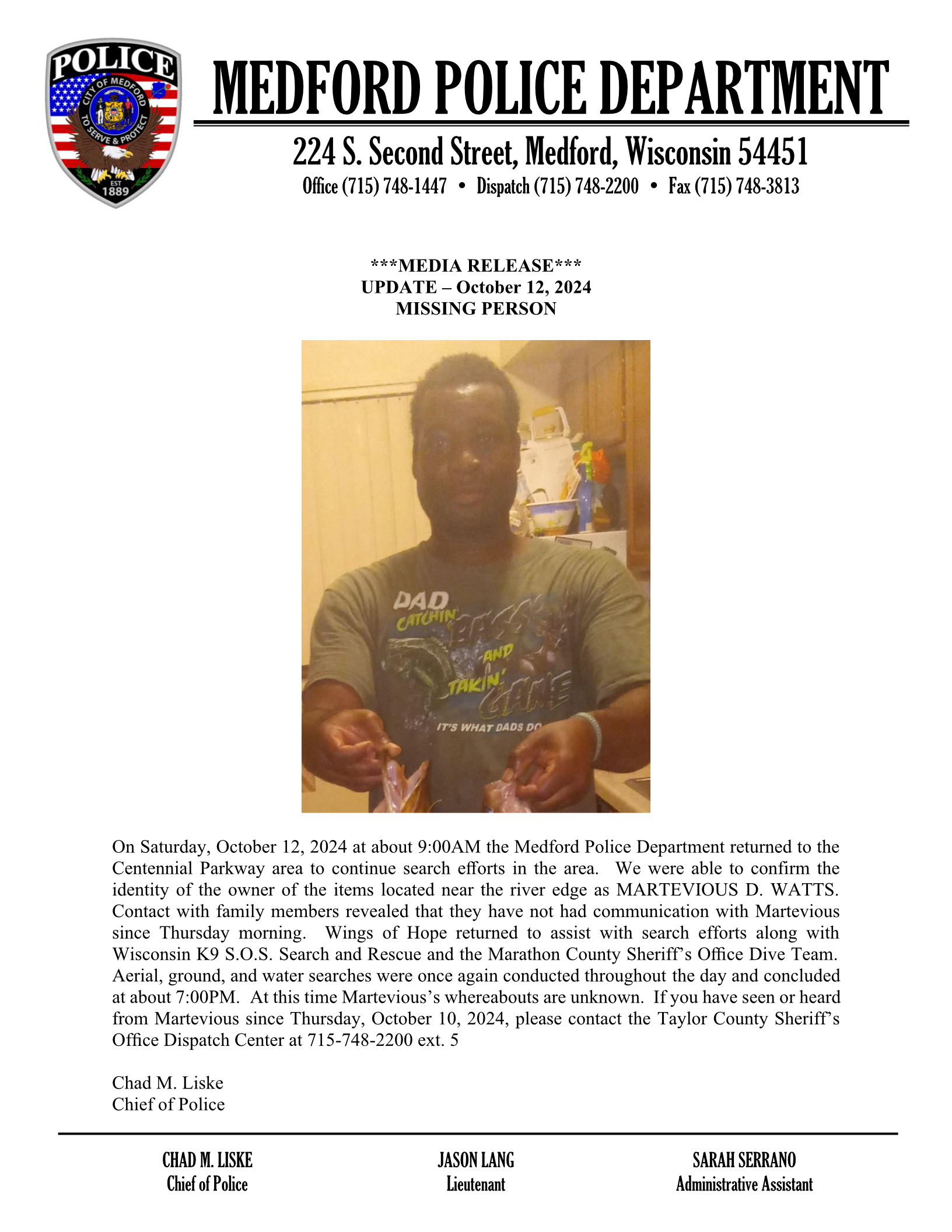Cadott physician pays $70,000 to resolve CSA violations
Clifford T. Bowe, M.D., a retired Cadott physician, has entered into a settlement agreement to pay $70,000 to resolve civil allegations that he violated in the Controlled Substances Act (CSA), relating to his prescribing controlled substances, including opioids, outside the usual course of professional practice, among other CSA violations.
Bowe owned and operated Cadott Medical Center (CMC) in Cadott. A majority of his patients went to the CMC, because they were suffering from opioid use disorder and other addictions. Bowe received authorization to treat up to 100 opioid dependent patients for opioid use disorder with medication-assisted treatments, such as the FDA-approved Schedule III drug, buprenorphine (Suboxone).
Buprenorphine, a partial opioid agonist, blocks the opiate receptors and reduces an individual’s urges to use opioids. According to the government’s allegations set forth in the settlement agreement, Bowe not only improperly prescribed buprenorphine, along with other potent opioids, but he also counseled patients on how to fill the improper simultaneous prescriptions, so as to avoid rejection by pharmacies or insurance payers.
Moreover, the government alleged that Bowe prescribed Schedule II opioids to treat opioid use disorder, which is prohibited by CSA regulations.
According to the settlement agreement, the government alleged Bowe also violated the CSA, by prescribing emergency Schedule II controlled substances to a family member who failed to meet the regulatory requirements for such prescribing; by providing inaccurate directions for use on controlled substance prescriptions to maneuver-around pharmacies refusing to fill compounded prescriptions or insurance companies denying payment for such prescriptions; and by failing to maintain records regarding the receipt and dispensing of controlled substances, or to maintain an inventory of controlled substances on-hand at the CMC.
Bowe denies these allegations.
In enacting the CSA, Congress recognized the importance of preventing the diversion of drugs from legitimate to illegitimate uses. The CSA, in relevant part, deters the illegal distribution, possession, dispensing and improper use of controlled substances, all of which have contributed significantly to the opioid epidemic over the past two decades.
The CSA therefore regulates entities and practitioners that dispense controlled substances, by establishing controls over all stages of the chain of distribution of controlled substances in the United States.
“Physicians who prescribe controlled substances, including opioids, outside the usual course of professional practice, abuse their prescription-writing privileges and contribute to the opioid crisis,” said U.S. attorney Scott Blader. “Controlled substance prescribing violations, in addition to the critical recordkeeping of controlled substances to ensure the system remains closed, will result in enforcement action in the Western District of Wisconsin.”
“[The] DEA (Drug Enforcement Administration) will continue to pursue civil actions against any registrant that violates the CSA, by practicing outside of professional medical practice and issuing illegitimate controlled substance prescriptions,” said DEA Milwaukee district office assistant special agent in charge, Paul Maxwell Jr. “The over-prescribing of opioids has played a large role in the national opioid addiction crisis that our country currently faces on a daily basis.”
According to public records, Feb. 15, 2012, the Wisconsin Medical Examining Board reprimanded Bowe for engaging in any practice or conduct that tended to constitute a danger to the health, welfare, or safety of patients or the public, and thus, unprofessional conduct, including the unjustified prescribing of Schedule II and other controlled substances. The board ordered Bowe to attend a Comprehensive Pain Board symposium, which he later completed.
Then in 2017, the DEA obtained an Administrative Inspection Warrant to conduct an inspection relating to Bowe and the CMC. According to the settlement, after the DEA informed Bowe of numerous allegations that he failed to comply with, relating to the federal controlled substance requirements, Bowe voluntarily surrendered his DEA registration number. Without a DEA registration number, he could no longer prescribe or dispense controlled substances.
The state also opened cases into Bowe’s prescribing practices in 2016, that led to the Wisconsin Medical Examining Board’s March 15, 2017, order. According to the board’s order, to resolve the state’s claims, Bowe neither admitted, nor denied, engaging in unprofessional conduct, rather, he stated that because of his age and limitation on his ability to care for patients, he agreed to resolve the cases by voluntarily and permanently surrendering his Wisconsin license to practice medicine.
Assistant U.S. attorney Leslie Herje represented the government in this matter. The DEA Milwaukee district office primarily conducted the investigation, along with the U.S. attorney’s office Affirmative Civil Enforcement team.
The settlement agreement states CSA allegations only; Bowe denies the allegations, except he admits that, in violation of federal law, he pre-signed incomplete patient prescriptions on other than the date of issuance and placed them in patient charts.



